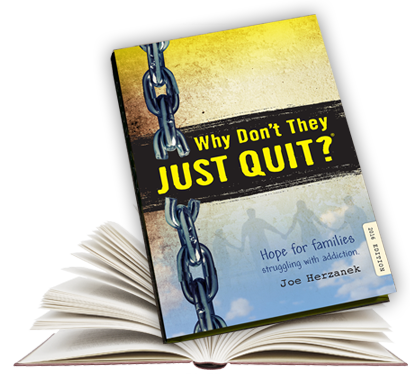Relapse. It Happens.
…but it doesn’t have to be the end of the road.
Is Relapse Part of Recovery?
Addiction is often described as a chronic relapsing disease. Relapse occurs when someone in recovery chooses to try controlled use again after attempting to stay abstinent. We understand that addicts and alcoholics can’t effectively control their substance use. If they could, they wouldn't be in this situation in the first place. Relapse represents another failed attempt to control how much they are able to use.
Using a substance occasionally and in moderation isn’t a problem for social drinkers. But once someone crosses over into habitual and uncontrolled use, there is no going back. Attempts to regain control and use alcohol or drugs socially and occasionally are common, and these attempts often lead to relapses. Statistics show that approximately 90 percent of those who complete treatment will experience a relapse, sometimes referred to as a slip.
Five months after finishing treatment in April, I tried one last time to see if I could control my using. I went out with an old friend and drank.
I don't remember if I called Gary or he called me. Gary and I used to take drugs together. He was a good friend. We had known each other since high school. He knew I had quit, but he didn’t know much about recovery. We hadn’t seen each other for months, since before I went to the treatment center. We went out to a bar. I don’t think I had any intention of drinking. After an hour or two of playing pool and being around a crowd of people who were drinking, I ordered a beer. To this day, I don’t know what I was thinking. After five or six beers, I realized I had messed up.
I wasn’t nearly as wasted as I wanted to be. What now? Be- cause of everything I had heard in recovery groups, I now felt a huge sense of guilt. Why did I let this happen? Looking back, I see it was a chain of events. Talking with Gary, meeting him at a bar, staying and playing pool— all the sights, sounds, and smells were too overwhelming at the start of my sobriety. A bad idea. Those few drinks didn’t give me the effect I craved. I realized it would take much more than just a few drinks. I didn’t want that old life back, and it became clear to me that I had to make an all-or-nothing choice.
It was just one night, but that single night motivated me to get right back to working on my recovery. This would fall into the category of a slip—one foolish decision that was brief and over quickly. I guess I just had to test the waters one more time. What this experience confirmed was that my addiction was real. I felt like an idiot. I had just blown one hundred fifty days of sobriety, and I didn’t even enjoy it.
Having a few drinks had always been the start of trouble for me. I knew I had to come to my senses right away, or I would soon be looking for drugs as well. This small slip could end up as a full relapse into using, or I could put an end to it that night. By this point in my recovery, I had learned enough to understand what was happening and what the consequences might be. I must have had a moment of clarity. Nobody needed to tell me that I messed up. Going back to the old life was the last thing I wanted.
I wasn’t sure what to do, so I decided to go back to my treatment center for a couple of days to figure this out.
I’ve heard similar stories from others who have relapsed. Many remember that pivotal moment when they faced the decision of what to do. Here are two different thoughts that can cross an addict's mind after a relapse: I’ve blown it anyway, so I may as well keep using for a while, or This was a dumb idea. I’d better get back to recovery before it gets much worse. Fortunately, the latter was my thought.
Ways to Prevent Relapse
Building relationships with others facing similar challenges is very important. A few close friends, a sponsor, or a mentor—any one of these can help hold someone accountable. I knew I had let some people down, but these same people encouraged me to keep moving forward.
One outcome of an addict spending time around people in recovery is that it can disrupt their previously satisfying relationship with alcohol and drugs. Those in recovery learn about the disease, and from that point on, they understand too much about its power to enjoy it like they used to. They realize there’s no turning back. If someone slips, they often feel the same way I did—like an idiot for even attempting to enjoy it again. But this is all part of the process, as everyone learns from mistakes like these. Family and friends shouldn’t get too discouraged when someone slips because it’s common early in recovery. See it as another opportunity for your loved one to recognize that addiction is indeed real.
My friend and addiction counselor, Larry Weckbaugh, in Eagle, CO, compared recovery to a series of stairs and landings between the flights. The addict might be up three flights and two landings when they relapse. They don’t fall into the basement; they only go down one flight.
Is there a difference between a slip and a relapse?
Sort of. The key difference depends on how a person handles it.
This article is an excerpt from the book Why Don’t They Just Quit? Hope for families struggling with addiction (pg. 187).


